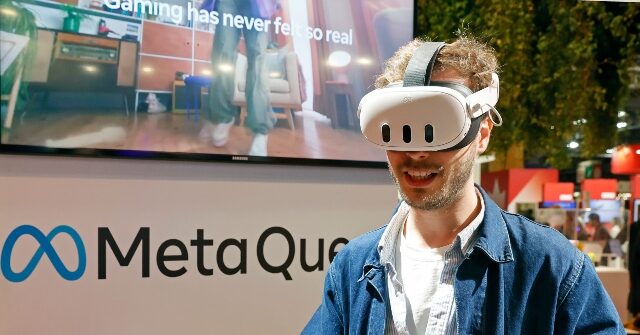Mark Zuckerberg’s Meta is facing allegations from current and former employees that it suppressed research that could have shed light on potential safety risks to children and teens using its virtual reality products and services.
The Washington Post reports that according to documents disclosed to Congress by a group of Meta employees, the company deployed its legal team to screen, edit, and sometimes veto internal research about child safety in VR after leaked studies led to congressional hearings in 2021. The employees allege that Meta’s actions were aimed at establishing “plausible deniability” about any negative effects of its products.
Meta has strongly denied wrongdoing in its research:
The documents provided to Congress include guidance from Meta’s legal team instructing researchers on handling sensitive topics that could lead to bad press, lawsuits, or regulatory action. In one instance, a Meta lawyer advised a user experience researcher to avoid collecting data showing children were using its VR devices “due to regulatory concerns.”
In response, a Meta spokesperson told Breitbart News:
These few examples are being stitched together to fit a predetermined and false narrative; in reality since the start of 2022, Meta has approved nearly 180 Reality Labs-related studies on social issues, including youth safety and well-being. This research has contributed to significant product updates such as new supervision tools for parents to see who their teens are connected with in VR, how much time they spend, and the apps they access. We have also introduced automatic protections for teens to limit unwanted contact, like default voice channel settings in Horizon Worlds so individuals can hear or be heard only from people they know as well as personal boundaries. We stand by our research team’s excellent work and are dismayed by these mischaracterizations of the team’s efforts.
Additionally, the documents reveal that Meta did not create parental controls for “tween” VR users until the FTC began investigating its compliance with a law meant to protect children online. Messages from employees also warned that children younger than 13 were bypassing age restrictions to use the company’s VR services.
A Meta spokesperson told Breitbart News that it allows for “protected, parent-managed experience for 10-12-year-olds:”
From the start, we built safety features into our devices and made it clear those devices were meant for people over 13—this was stated in the Oculus Safety Center, on the packaging, and in the user guides. As more people started using these devices and Meta launched its own games and apps, we added many more protections, especially for young people. These included enhanced user reporting functions and the ability of Community Guides to address under-13 users when they encountered them, as well as a protected, parent-managed experience for 10–12-year-olds; and parental controls for teens that allow parents to approve or block certain apps, check which apps their teen has, see how much time is spent on the headset, and view their teen’s followers and who they follow.
However, the researchers who submitted the documents to Congress stand by their claims. Jason Sattizahn, a former Meta researcher who specialized in VR safety, wrote in an affidavit that he was fired after disputes with managers about restrictions on his research. Another researcher, who specializes in studying youth and technology, quit in 2023 after four years at the company, partly because she felt unable to continue her work ethically.
Experts have long warned about the potential dangers of cutting-edge internet technology for children, as it can expose them to direct, real-time contact with adult predators. This is the case with Roblox, which faces legal challenges over predators and groomers reaching children via the gaming platform.
Read more at the Washington Post here.
Lucas Nolan is a reporter for Breitbart News covering issues of free speech and online censorship.
Read the full article here


